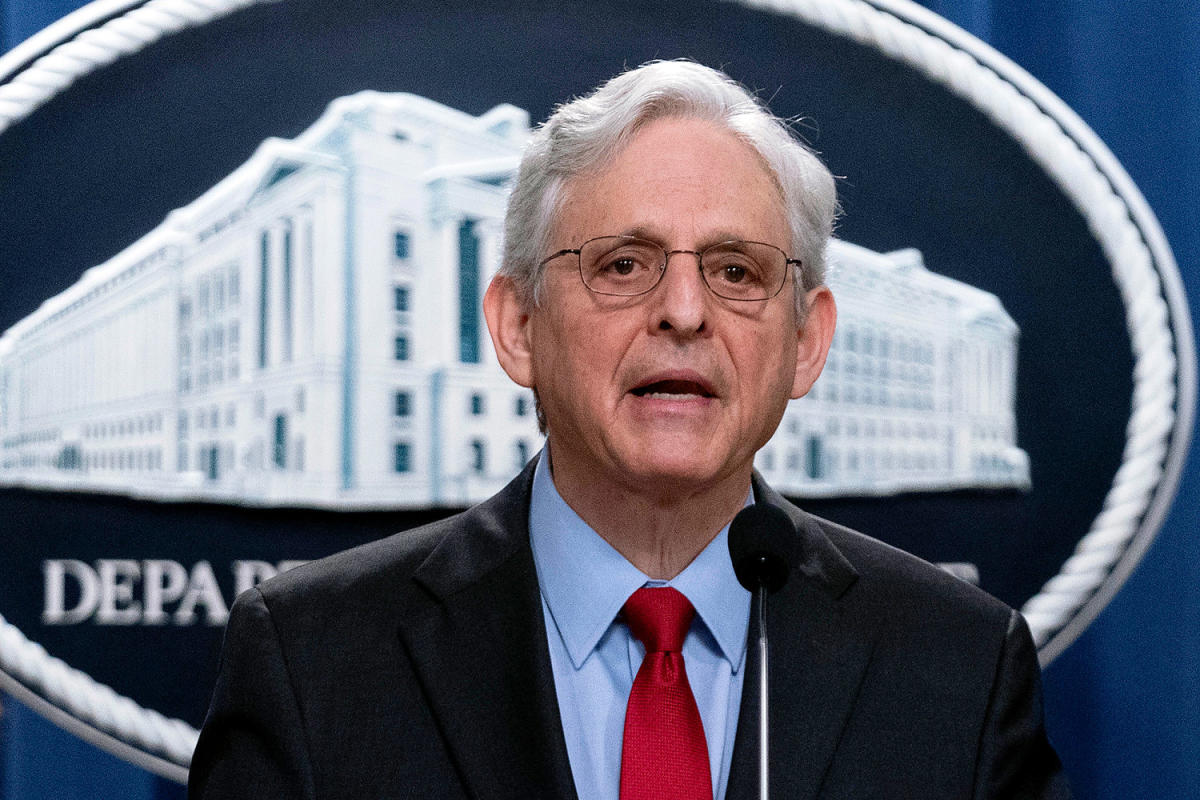As the war in Gaza nears eight months, and with Israel poised to cross into the last Palestinian civilian center in Rafah, the International Criminal Court announced arrest warrants Monday for leaders of Israel and Hamas for alleged crimes committed “in the situation in the State of Palestine.” But while the charges are remarkable, they are unlikely to change the policies of either side — or of the United States.
The ICC issued warrants for five officials. Hamas leader Yahya Sinawar is accused of “war crimes and crimes against humanity” starting with the attacks of Oct. 7, including murder, hostage-taking and torture. Israeli Prime Minister Benjamin Netanyahu is charged directly for using “starvation of civilians as a method of warfare” and “intentionally directing attacks against a civilian population,” joining the rare ranks of world leaders like Russia’s Vladimir Putin who have been charged with war crimes while leading a country.
Both sides swiftly criticized the warrants. In a statement, Hamas said it “strongly denounces” the charges as “without a legal basis.” Israeli war Cabinet member Benny Gantz said on X that putting “the leaders of a country that went into battle to protect its citizens, in the same line with bloodthirsty terrorists — is moral blindness and a violation of its duty and ability to protect its citizens.”
As those denials suggest, don’t hold your breath waiting for the charges to alter Hamas’ or Israel’s approach to the conflict — or America’s for that matter. These concerns are more about the court of public opinion than they are about the court of international law; the ICC has no official authority over Israel or the United States, so its actions serve more to organize the global community and draw rhetorical lines in the sand than they do for meting out justice.
The United States did help write the Rome Statute, the code that created the ICC in 2002, establishing an international body to bring some of the world’s worst criminals to justice. But when it came to formally submitting to the ICC’s jurisdiction over war crimes and genocide, the U.S. was one of dozens of countries that refused to sign, along with China, Russia and Israel.
The American rejection took place as the U.S. was leading NATO allies in overthrowing the Taliban in Afghanistan. A few months after the ICC was established, the United States and its “coalition of the willing” declared that weapons of mass destruction existed in Iraq, prompting the invasion that led to the overthrow of Saddam Hussein.
Over the course of 20 years of war in both countries, the United States faced multiple accusations of war crimes by its forces. While Saddam Hussein was awaiting trial for crimes against humanity in 2004, the world became aware of the humiliation and torture of Iraqi prisoners by U.S. soldiers in Abu Ghraib prison. Charges were ultimately brought, but in a U.S. military court. As recently as 2020, the ICC launched an investigation into crimes against humanity committed in Afghanistan, with a special focus on CIA-led night raids on civilians and U.S. military renditions of suspects to other countries. In all cases, the United States rejects the authority of the ICC to hold U.S. citizens accountable for any criminal acts.
On the one hand, resistance to the ICC’s authority helps countries, like the United States and Israel, to maintain protection over its own citizens and conduct unilateral military action that goes against global consensus. The individual countries — not the U.N. — get to decide what military action is justified and meets national objectives. This decadeslong dance is how the United States has maintained the “liberal world order” and developed the rules of the road, while also protecting its own power and freedom of choice.
But the challenge comes when the United States is leading the charge globally for a return to ally-ship and reuniting democracies against the rising threat of fascism, using language of the need to prioritize human rights. In a cable to diplomats early in his tenure, Secretary of State Antony Blinken said “standing up for democracy and human rights everywhere is not in tension with America’s national interests nor with our national security.” Refreshingly, Blinken also advised “that we acknowledge our imperfections. We confront them openly and transparently.” This value set is what led Blinken to declare earlier this week that five Israeli units committed human rights violations in the conflict in Gaza.
As the United States resists the ICC’s oversight into its own actions and the actions of the Israeli military, the U.S. maintains its own interests — and its own power — to determine when to protect universal human rights and when to protect itself. But in doing so, it risks further isolating both countries from the global community.
This article was originally published on MSNBC.com
Signup bonus from





